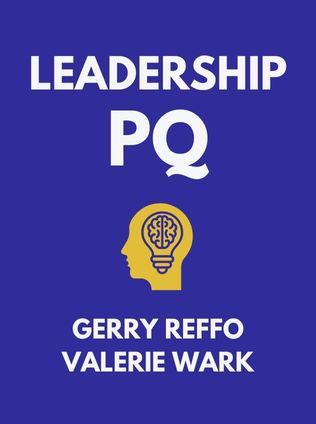
Leadership PQ
How Political Intelligence Sets Successful Leaders Apart
By Gerry Reffo, Valerie Wark
Published 03/2014
About the Author
Gerry Reffo is a senior independent HR consultant and an Ashridge Business School accredited executive coach. For the past 11 years, she has designed competency frameworks and run assessment centers to identify senior leaders. Her extensive experience in HR and leadership development has shaped her insights into political intelligence and its importance in contemporary leadership.
Valerie Wark is an Associate of Ashridge Business School in the UK, a leadership tutor, and an independent executive coach. She works with international corporate clients, including Vodafone, The Body Shop, and BBC Worldwide. Wark's expertise in leadership coaching and development has informed her co-authorship of Leadership PQ.
Main Idea
Leadership PQ: How Political Intelligence Sets Successful Leaders Apart explores the critical role of Political Intelligence (PQ) in modern leadership. Reffo and Wark argue that in an increasingly interconnected and regulated world, leaders must develop PQ to effectively navigate the complex relationships between business, government, and society. PQ enables leaders to build strategic partnerships, influence policy, and achieve sustainable success.
Table of Contents
- Introducing Political Intelligence (PQ)
- The PQ Model
- Developing PQ as a Leader
- Developing PQ in Your Organization
Introducing Political Intelligence (PQ)
The future demands leaders who can do more than operate within their own spheres of influence. Globalization, societal challenges, and technological advancements have created a world where power is distributed among various entities. Political Intelligence is the capacity to interact strategically in this shared power world, enabling leaders to build relationships that drive better outcomes for business, government, and society.
"The future demands leaders who can do more." - Gerry Reffo and Valerie Wark
PQ is essential because it addresses the complexities of the modern political environment. Businesses operate in a world where electorates are better educated, informed, and networked, leading to more demanding citizens. Governments face constraints due to globalization, which reduces their room for maneuvering. PQ allows leaders to anticipate problems, influence political landscapes, and become part of the solution rather than a problem.
Shared Power World
A shared power world is one where no single organization controls its destiny. Profits, governance, public services, and societal contributions are all more effective when organizations collaborate. Leaders who can navigate this environment and foster partnerships are the new rock stars of leadership.
Change Drivers
Several factors drive the need for PQ:
- Market failure: The global economic crisis highlighted the limitations of relying solely on market forces.
- Wicked problems: Issues like climate change, resource scarcity, and inequality require collaborative solutions.
- Demographics: Rapid urbanization and economic development are reshaping global populations and resources.
- Struggling political systems: Both autocratic and democratic systems face unique challenges in governance.
Leaders need to build an understanding of shared power into their organizations' DNA. This involves recognizing the necessity of cooperation, transparency, and diverse perspectives to address complex issues effectively.
The PQ Model
The PQ model is a comprehensive set of skills, behaviors, and processes designed for leaders in business, government, and non-profits. It consists of five facets:
Sign up for FREE and get access to 1,400+ books summaries.
You May Also Like
The Subtle Art of Not Giving a F*ck
A Counterintuitive Approach to Living a Good Life
By Mark MansonRich Dad Poor Dad
What the Rich Teach Their Kids About Money - That the Poor and Middle Class Do Not!
By Robert T. KiyosakiHow To Win Friends and Influence People
The All-Time Classic Manual Of People Skills
By Dale CarnegieQuiet: The Power of Introverts
The Power of Introverts in a World That Can't Stop Talking
By Susan Cain



















